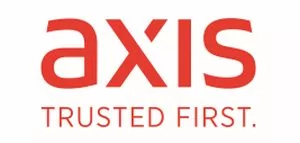In view of aligning with the Financial Intelligence and Anti-Money Laundering Act 2002 and the Financial Intelligence and Anti-Money Laundering Regulations 2018 and in providing further guidance to reporting persons, the Anti Money Laundering and Combatting the Financing of Terrorism Handbook 2020 ("AML/CFT Handbook") has been updated on the 21st of September 2022 to include the following provisions:
- A new provision on Certification – "Sub-Chapter 5.10" has been added with the main objective to provide financial institutions guidance on how to certify documents; and
- The wordings on Independent Audit under section 13.3.1 (Assessing the "independence" of the audit professional) have been changed from "accountants or independent consultants duly regulated or registered by relevant competent authorities" to "independent service providers/consultants". Hence, this amendment has removed the requirement to be an accountant or independent consultant duly regulated or registered by relevant competent authorities to carry out an independent audit.
Certification requirements
- The bottom line is that whenever a financial institution relies upon verification of identity documentation that is not in an original form, the documentation must be appropriately certified as true copies of the original documentation.
- In the event that an employee of a financial institution meets an applicant for business or the principals thereof face-to-face and has access to original verification of identity documentation, he or she may take copies of the verification of identity documentation and certify them personally as true copies of the original documentation.
- In other cases, copies of the verification of identity documentation can be certified by a suitable person, such as an attorney, a lawyer, a notary, an actuary, an accountant or any other person holding a recognised professional qualification, director or secretary of a regulated financial institution in Mauritius or meets the FATF's standards, a member of the judiciary or a senior civil servant.
- The certifier should sign the copy document and clearly indicate the date of certification, his or her name, address and position or capacity on it together with contact details to facilitate tracing of the certifier and, where available, any registration number with any professional body.
- The above list of suitable certifiers is not intended to be exhaustive and financial institutions should exercise due caution when considering certified copy documents, especially where such documents originate from a country perceived to represent a high risk or from unregulated entities in any jurisdiction.
- Where certified copy documents are accepted, it is the financial institution's responsibility to ensure that the certifier is appropriate. In all cases, financial institutions should also ensure that the customer's signature on the identification document matches the signature on the application form, mandate or other document.
In light of the above changes, it can be noted that a certain level of regulatory flexibility is being attributed towards independent auditors and the target audience has been extended to include more service providers. As for certification requirements, it appears that some components of the previous FSC Code have been reiterated, along with further details on certification requirements.
The content of this article is intended to provide a general guide to the subject matter. Specialist advice should be sought about your specific circumstances.

